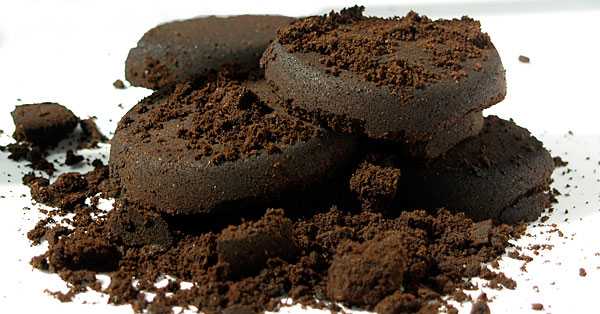50,000 tonnes of coffee grounds will be turned into clean-burning and carbon neutral biomass pellets in the UK this year by the startup Bio-Bean. And founder Arthur Kay dreams of the day when he can power every bus in London with London’s own coffee grounds.
Those few spoonfuls of coffee grounds that go into your morning brew don’t seem like much, but when added together with the grounds of all the other people in the city, there’s a virtual mountain of this leftover material created every single day.
And while gardeners, worm farmers, and composters are already very receptive to this brown gold, it may soon also catch the eye of those looking for a clean fuel source for a variety of other industries, thanks to the work of companies like Bio-Bean, which is turning this ‘waste’ material into a valuable resource.
Since its inception in 2014, which was helped in part with funding from the Postcode Lottery Green Challenge and significant amount of private investment, Bio-Bean has launched a UK-wide collection service and opened a waste coffee recycling factory.
This factory turns the material into biomass pellets, used primarily for fueling large industrial boilers at places such as supermarkets, offices, homes, airports and factories at the moment.
The company is now able to handle up to 10% of the country’s grounds each year, or about 50,000 tonnes, which is said to be the equivalent amount of energy for fueling some 15,000 homes.
Biomass made from coffee grounds is a much cleaner and greener type of fuel than many other kinds of biomass, where a feedstock material is grown in order to use as fuel, because the grounds are essentially a waste product of making coffee.
And in many parts of the world, such as the UK, biomass pellets are actually made from trees in the US, which are then shipped over as a ‘cleaner’ fuel, so a waste-based biomass pellet is much more sustainable.
It’s a carbon-neutral fuel that not only happens to have a higher calorific value than wood, according to Kay, making it a great fuel option, but that is also cheaper than most of the alternatives.
It also happens to be something that the suppliers, the coffee shops, need to get rid of as a course of doing business, so it’s a win/win situation.
Bio-Bean is also working on additional applications for its coffee-based biomass, including a few consumer options like barbeque briquettes (coals) and fire logs, but it’s the forthcoming larger-scale programs that may actually have a big impact, as the company is currently researching coffee-based liquid fuels such as biodiesel, as well as a range of other biochemicals.
One core takeaway from this story is that it isn’t just about coffee waste (although it certainly seems there is a lot of potential for other entrepreneurs to start capitalizing on this reusable resource), because waste materials are produced by virtually every industry.
By recognizing the value of something that’s considered waste in one place, such as bags of coffee grounds waiting to be disposed of at the cafe, and then turning that material into the feedstock for another product or service, it’s possible to build a sustainable green business.
Derek Markham


















